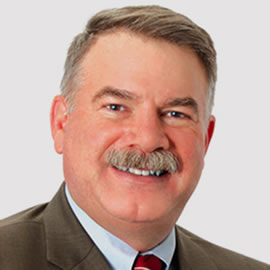“Show me a successful individual and I’ll show you someone who had real positive influences in his or her life. I don’t care what you do for a living—if you do it well, I’m sure there was someone cheering you on or showing the way. A mentor.” — Denzel Washington
My wife, Pam, and I have been truly blessed. We have raised three professional young adult women who are out in the world, blazing their own paths. We are preparing later this year to retire entirely and move toward a 30-year dream of living and traveling on a cruising catamaran full-time (more on this in coming editorials, dear reader). Pam and I have always followed the adage, “pay yourself first every month.” Essentially, every month, we ensured we put money away into savings and investments while ensuring the credit card balance was zero—paying ourselves first. Early in my life, a mentor provided this tidbit of excellent financial advice. I am grateful that this fiscal discipline during the past 30 years provides the means to fulfill our desire for travel and adventure, now that our responsibilities to children have eased. Preparing for this monumental change in our lifestyle—selling our home and everything in it—has consumed our discussions, made our nights restless and been accompanied by no small amount of trepidation. Fortunately, a close friend reminded us both how incredibly fortunate we were to be having these “problems.” I believe she said, “The universe is showering you with love. Just enjoy it!”
This caused me to pause and perform some introspection that apparently, I desperately needed. As the date of my retirement from federal service rushes toward Pam and me like a freight train, it has caused me to look back on my career and explore how I arrived here. Like most readers of this column who have spent their lives in service to federal medicine, it has not been all peaches and cream. Like any successful healthcare provider, my career has been a series of successes, challenges, personal trials and occasional failures. Becoming a military physician is accompanied by a decade of education, constant testing, ridiculous hours, deployments and family separation, heartbreaking patients, and other trials that must be overcome. Fortunately, I have been blessed with numerous mentors who helped me overcome these challenges, resulting in fleeting moments of righteous success. The rush of these moments, as clear in my mind as the day they occurred, is the stuff that drives so many of us through life’s difficulties. As time passes, I find memories of success have dulled the pain of the trials that had to be overcome for the achievement to shine through. In the end, those successes, whether at work, in a marriage, raising kids or interacting with others, is society’s measure for the quality of a person’s life.
As I reflected on this concept of what constitutes success in life, what it meant for me, my family, and others I know, I found a common thread. Nothing I have accomplished in my life has been achieved alone. Every academic achievement, successful deployment or win in my career or family life has involved the help of a mentor. In fact, in those times in my career when I lacked an advocate, I have experienced some of my most bitter failures. Fortunately, in those darker times, I always had my most important advocate, Pam, to help me see through the failure to the possibilities beyond (Thank you, honey). The critical fact to remember with any personal triumph is they do not belong just to you. Any success also reflects the efforts of those who supported us when the going was not pleasant.
When I achieved, it was always with the enhanced confidence and lift provided by some mentor. We really accomplish nothing alone. Take the time to look beyond the headlines describing any individual accomplishment, and you will find the mentors who created the conditions for that person’s success. For servicemembers, this concept is certainly not a revelation. Those exposed to combat must depend upon the competence and fidelity of those with them for survival. Strangely, the greatest expressions of selfless service to other humans seem to be most often expressed when we are at our worst during the prosecution of a war.
As I have matured as a federal medicine provider, I have come to understand that my most significant professional accomplishments are expressed in the individuals I have been honored to mentor. As a leader, I am most proud of those who have launched their own success stories from my organization. Yet, I find it strange that the act of being a mentor seems to be the least appreciated and celebrated activity in federal medicine. Mentors rarely are the stuff of headlines or awards. Perhaps it is a flaw in the species that we tend to celebrate the individual and ignore the team or community that makes personal success possible.
I decided to dedicate this editorial to mentors in federal medicine. You know who they are and, like me, you know they are responsible for your success. This is also a thank-you letter to the teachers who tolerated me, the wounded servicemembers who smiled at my bad jokes, the officers who advised me down a cleaner path, the peers who modified my ideas, and my wife, who is always my compass and safe harbor. I think it is essential to acknowledge our mentors whenever possible. I encourage readers of this column to reach out to their own mentors and advocates to express thanks.
More importantly, I challenge you to seek opportunities to provide mentorship. There really is no better feeling than being a catalyst for someone else’s success. Perhaps the only real permanence we can achieve in our short careers is through the continued success of our posterity.



